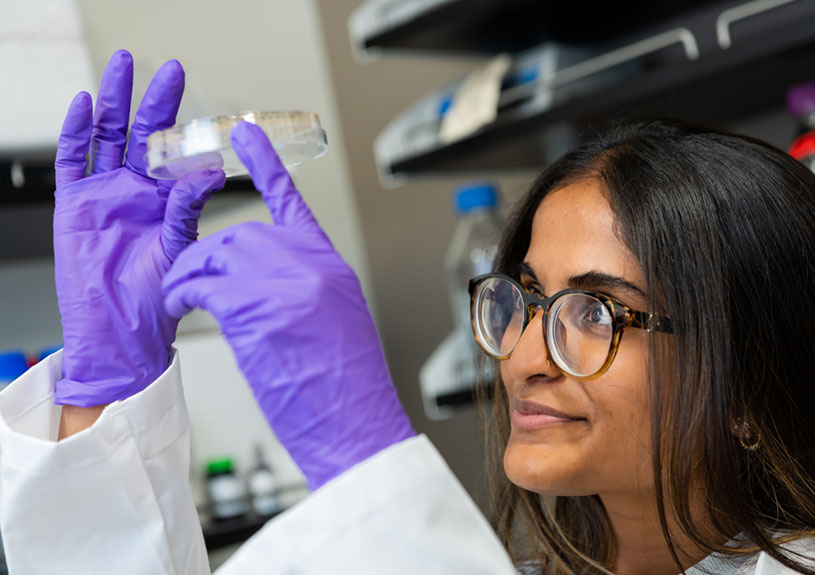You’re considering a career in the medical field because you’re passionate about helping people. However, you may need to weigh several factors to determine which pathway is best for you. Becoming a licensed pharmacist with a Doctor of Pharmacy may be the best choice if you want to make an impact through direct patient care that blends science, technology and business. High Point University’s Doctor of Pharmacy program graduates confident and compassionate professionals ready to meet the future of healthcare.
You’re probably wondering “What is a Doctor of Pharmacy?” and “What can I expect in terms of PharmD jobs and salary?” We’ll examine the answers to these questions and explore what you should consider in choosing PharmD degree programs and careers.
What Is a PharmD Degree?
A Doctor of Pharmacy degree is a professional doctorate for pharmacists, equivalent to a Doctor of Medicine for physicians. Earning a PharmD, the abbreviation for Doctor of Pharmacy, is required to sit for the North American Pharmacist Licensure Examination (NAPLEX) and represents the highest credential for practicing pharmacists.
You’ll build a solid medical knowledge through fundamental coursework and experience patient-centered clinical training to learn the skills to make critical decisions as part of a collaborative healthcare team.
How long does it take to get a PharmD? Students earn their Doctor of Pharmacy degree after four years of pharmacy school, after completion of a pre-professional track to build a strong foundation in the sciences. Because a bachelor’s degree may or may not be required for entry, most graduates can finish a PharmD degree in six to eight years.
What Does a Doctor of Pharmacy Do?
Being a pharmacist provides a fulfilling medical career. You’ll have the opportunity to improve patients’ lives through your focus on safe and effective use of medications. When you earn your Doctor of Pharmacy, you’ll build strong interpersonal communication, problem-solving, analytical and organizational skills. What can you do with a PharmD? Your education, experience and expertise will qualify you for positions where you may:
- Provide quality patient care and dispense medications
- Consult with physicians on the selection and dosage of medications
- Advise patients on general health topics and selection of over-the-counter medicine
- Contribute to research and the testing of new drugs
- Administer flu shots and other vaccinations

- Hospitals and large healthcare systems
- Government agencies
- Managed care facilities
- Pharmaceutical startups
- Research centers


